[ad_1]
Hi world, I’m Megan. I’m 38, and last summer I entered a new (to-me, anyway) phase of life: menopause.
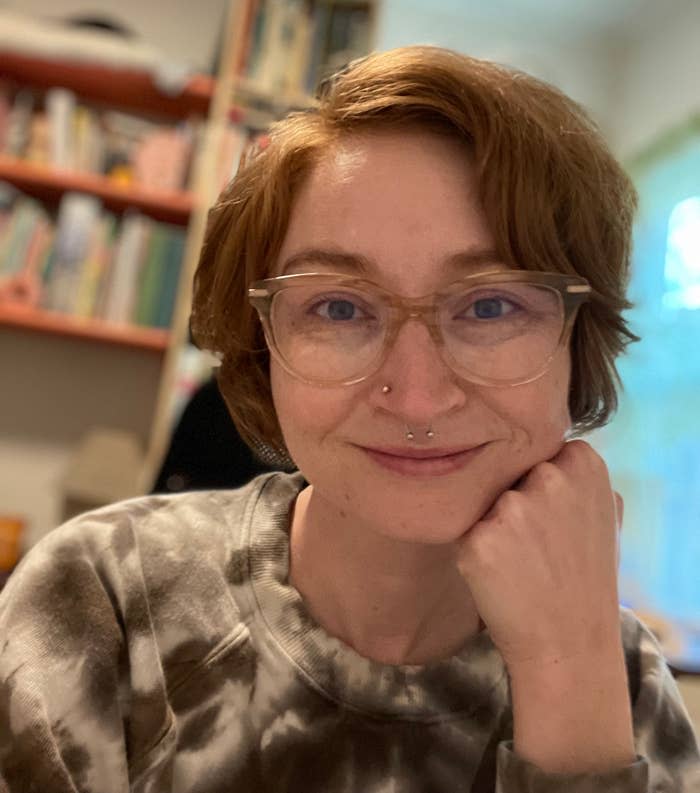
I’m in medical menopause after beating stage two breast cancer (which I wrote about here), but you should know it’s not unusual for people my age to start experiencing symptoms of perimenopause like hot flashes, night sweats, dry skin, and so much more.
Megan Liscomb
In case you’re like, ‘Wait, what’s menopause and what’s perimenopause, and how is medical menopause different, and what does any of this mean??’ let’s start with some quick definitions:
Menopause occurs because our estrogen levels get lower, eventually causing the menstrual cycle to end. Clinically, doctors will usually say you’re in menopause if your menstrual cycle has ended and you haven’t had a period in one year. The average age of menopause in the US is 51.
Perimenopause literally means “around menopause.” It’s the time leading up to the end of your cycle when many of the symptoms we associate with menopause may appear.
However, just as our period symptoms can vary, some people don’t notice symptoms during peri while others may observe a wide (and surprising) variety of changes. Perimenopause can last for seven to 10 years, and it’s not uncommon for it to begin in the late 30s or early 40s.
Medical menopause is menopause that’s caused by a medical treatment. For some, this might occur after ovary removal surgery, chemotherapy, or radiation. Medical menopause can come with more severe side effects than natural menopause, but it really varies from person to person.
As for me, I get monthly ovarian suppression injections plus a daily pill. Together, these medications keep the estrogen levels in my body extremely low, which is great for preventing my highly hormonally-driven cancer from returning.
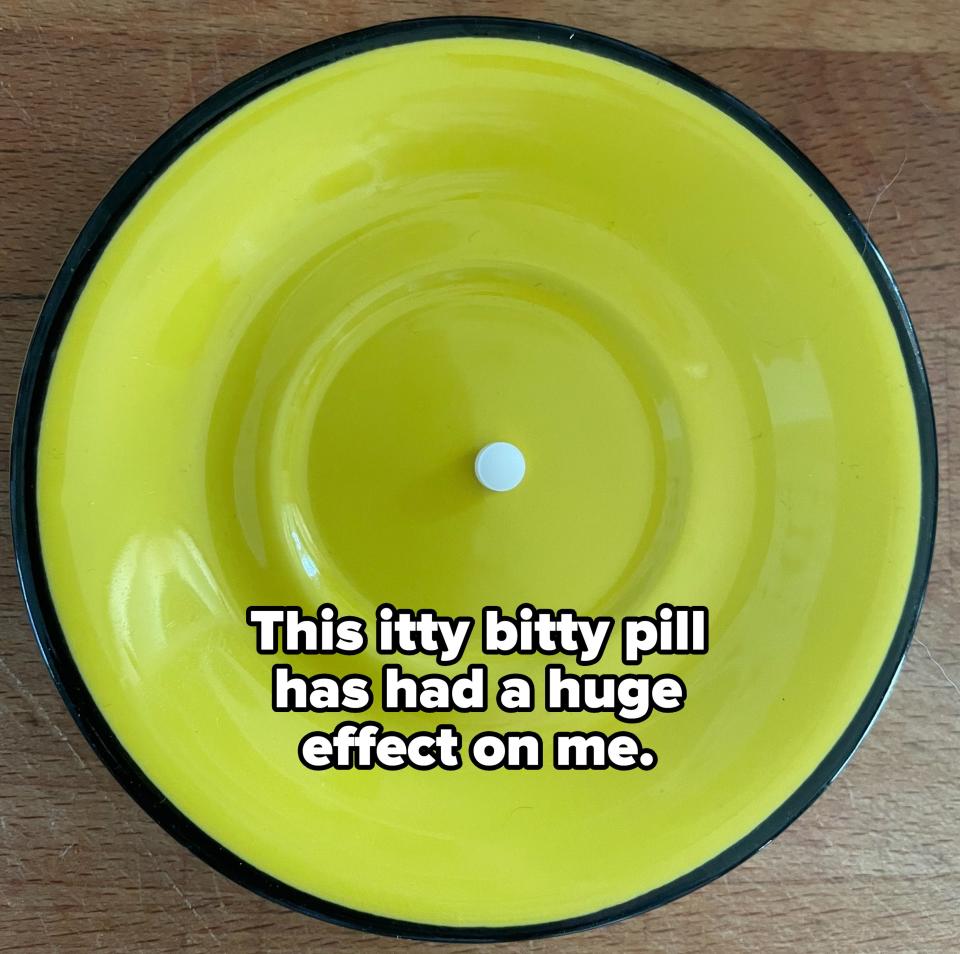
But it hasn’t been so great in other ways. Instead of going through years of perimenopause and weaning off estrogen naturally, my hormone levels basically went off a cliff. And since I went into menopause so young, my risks for everything from osteoporosis to heart disease went up.
It’s been tolerable for me so far, but about 40% of people stop this treatment early because of intense side effects. On the other hand, some people report very few side effects or none at all. I’m somewhere in the middle.
Hot flashes are my biggest symptom, but since hitting meno I’ve also dealt with: a random bout of vertigo, months of insomnia, pain during sex, a sudden drop in my caffeine tolerance, much dryer skin, and my first UTI. It’s like another puberty, but minus a helpful Judy Blume book to walk me through it.
Megan Liscomb
Now that I’ve been in menopause for a little while, I want to share a bit about what it’s been like for me so far and how I hope millennials (aka people currently between the ages of 28 and 43) will change the way the world sees menopause.
I went into menopause knowing very little about it — and I know from talking with other millennials that it’s a mysterious topic for many of us. My mom never said a word to me about what her menopause was like, and our culture is often either silent or outright cruel when it comes to discussing “the change.” Pretty much everything I knew about menopause before it happened to me came from mean jokes on ’90s sitcoms.
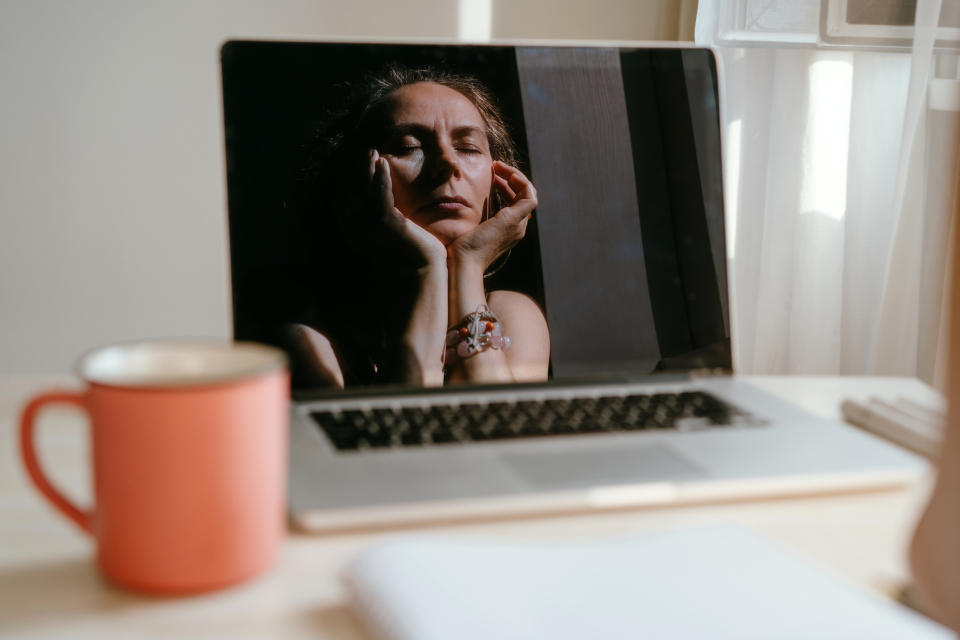
One in particular that stands out in my mind. Anyone else remember the episode of Sex and the City where Samantha’s period is late and she’s afraid it’s menopause? I rewatched it recently and the way she talked about it made me so deeply sad.
Women have been told for too long that menopause makes us irrelevant, unattractive, and invisible, and it’s long past time we stopped believing it. I’m the same person I was when I had periods. My life is not over just because I have less estrogen.
Fiordaliso / Getty Images
The shame and silence around menopause is beginning to melt away, and I hope millennials will push the envelope even further as we go through it. I loved the response last year after Drew Barrymore had her first hot flash on live TV. So many people felt seen in that moment. It made something that’s often invisible (or treated as embarrassing or shameful) into a national conversation.
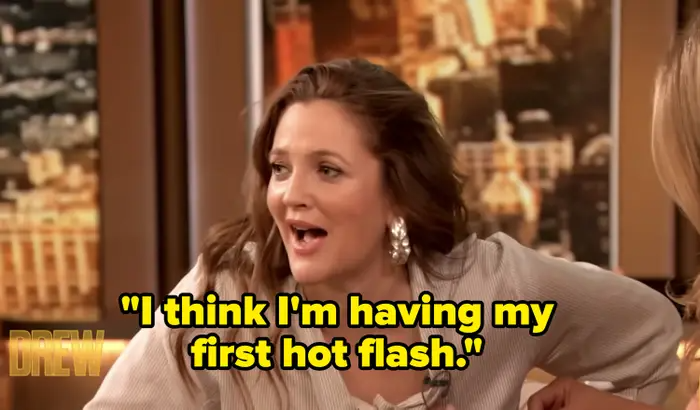
I’m doing my part to normalize hot flashes by openly acknowledging them as a neutral fact of life for me. I’m not ashamed to discreetly fan myself in a meeting or step outside during dinner if I start to overheat. I wouldn’t try to hide a sneeze, so why try to pretend a hot flash isn’t happening?
I have around five to ten hot flashes on a typical day, and sometimes for the most random reasons. Trying to open a jar that’s sealed too tight? Hot flash. Skipped breakfast? Hot flash. Eating a big delicious dinner? Also hot flash.
I still get embarrassed and annoyed by them from time to time, but the more I act normal about it, the less they bother me. I thought this was pure dismissive BS when my doctor suggested it, but taking a deep breath and staying calm really does make them pass faster for me.
The Drew Barrymore Show / Via buzzfeednews.com
I also hope millennials will continue the push for better healthcare in perimenopause and menopause. Hormone replacement therapy (HRT) is a safe and effective option for many, but it fell by the wayside for years, leaving people experiencing troubling symptoms to tough it out on their own.
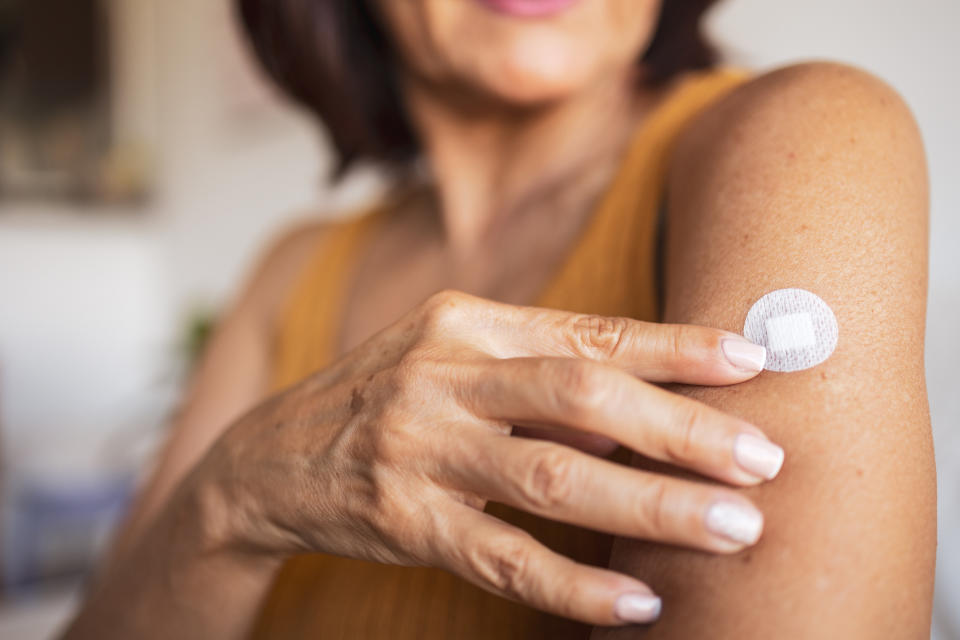
I emailed with Dr. Somi Javaid, founder and lead chief medical officer at HerMD who said, “The gold standard for menopausal patients is hormone therapy.” However, a study from way back in 2002 gave HRT a bad rap.
Dr. Javaid explains, “The biggest thing I hear still is people saying hormones are not safe, that’s just not true, hormones are safe. There was a hormone therapy study by Women’s Health Initiative (WHI) that misled the public because they didn’t really study the right patient population.”
It’s unfortunate that so many people avoided HRT for so long due to this one misleading study, and I’m so glad that we have a better understanding now. But frankly, HRT is not enough.
Mstudioimages / Getty Images
Some people, like me, can’t take HRT, and others simply don’t want to. We need hormonal and nonhormonal options that can help alleviate bothersome symptoms and keep us feeling vibrant as we age.
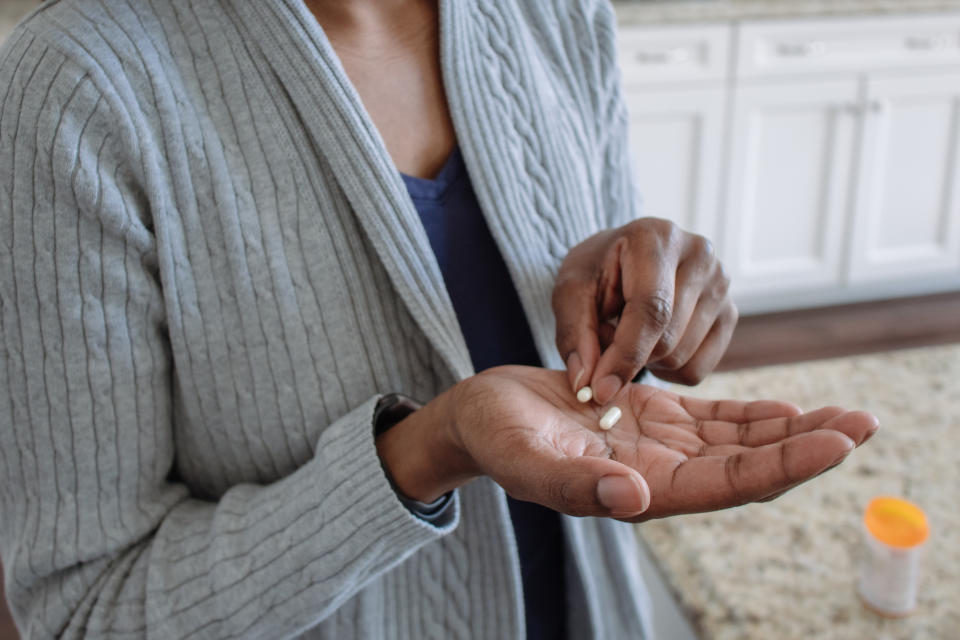
I’ve been working with my oncologist to find relief for my most troublesome symptoms. I’ve tried lifestyle modifications, supplements, and a patchwork of medications prescribed off-label to treat my symptoms. It took months to finally find the right treatment for my night sweat-induced insomnia, and I was the tiredest I’ve ever been in my life.
It’s been a lot of frustrating trial and error for me. But there are some glimmers of hope. Last year, the FDA approved a new nonhormonal drug to treat hot flashes, and I’ve heard anecdotal reports from those who’ve tried it and say that it really helps. We need more options like this, and I hope that researchers in my generation will make it happen.
Grace Cary / Getty Images
Some people argue that menopause is natural, so why should we need specialized healthcare for a natural event? They couldn’t be more wrong. Dr. Javaid explained, “Menopause is natural, but it comes with a host of disruptive and sometimes devastating quality of life side effects that I don’t believe women need to suffer through. The costs of letting menopause symptoms go untreated are immense, and they include both physical and economic costs.”
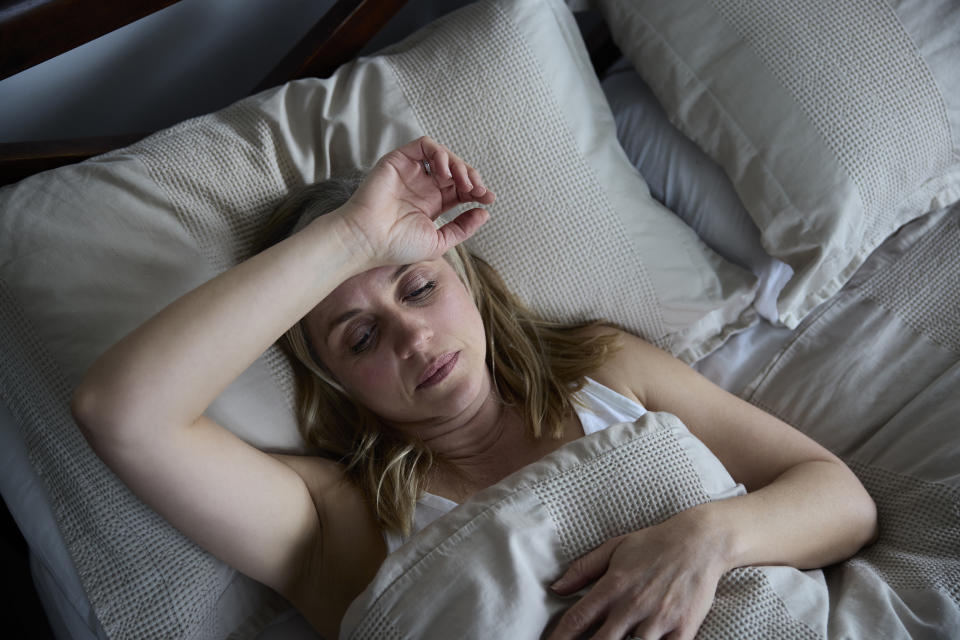
She shared a Mayo Clinic study with me that found that in 2022, women in the United States lost out on a staggering $1.8 billion when they couldn’t work due to untreated menopause symptoms.
She also talked about some of the other health risks that increase as our estrogen decreases. “Women lose 20% of their bone mass as they go into menopause which increases their risk of fractures. So, a woman’s mortality increases if she falls and breaks her hip. Her risk of cardiovascular disease increases as she goes into menopause. Women can die from repeated urinary tract infections; they can go into urosepsis.”
Finding a provider who’s knowledgable about menopause can still be tricky. However, the North American Menopause Society has a tool that can help you find a menopause-informed provider near you.
And I hope that any healthcare providers reading this will take it upon yourselves to seek menopause education and inform your patients. You have the power to make an enormous difference in so many lives!
Ridofranz / Getty Images
Finally, I hope that millennials will take this moment to get proactive about our health. There are definitely things millennials can do now to prepare for the eventual transition into menopause.
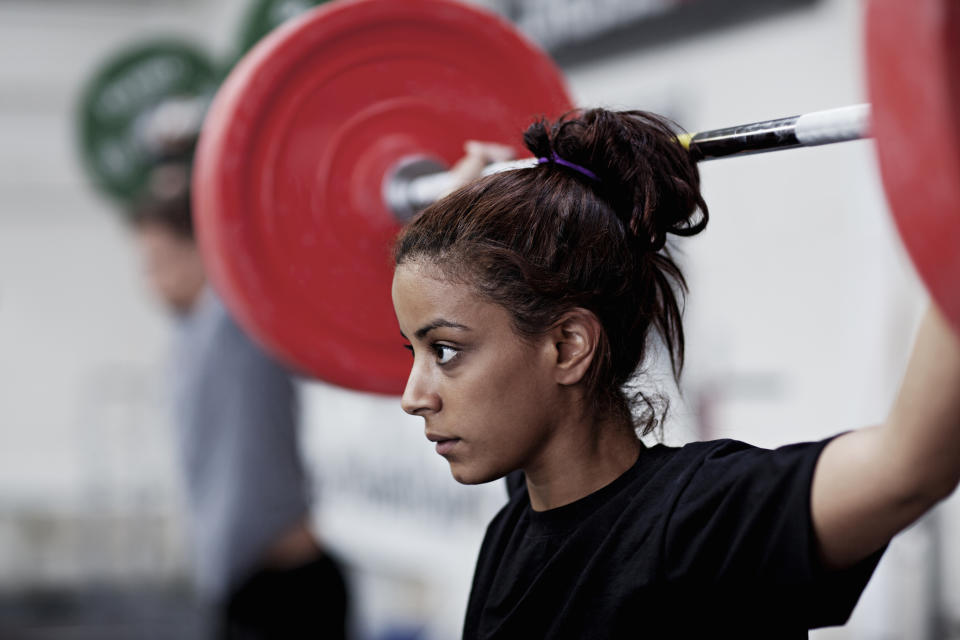
Number one on the list is lifting weights. Dr. Javaid said, “Start strength training! My biggest regret is that I didn’t start strength training and building muscle in my 20s and 30s. I recommend millennials start weight-bearing exercise now.”
Strength training has been proven to preserve bone density, which is at its peak in your 20s and 30s, and it can also reduce your fall risk as you get older. I’m a lifelong wimp, but I’m getting into weight lifting and actually really love it! It’s fun to push myself and see what my body can do, and I’ve noticed that I tend to have fewer hot flashes after an intense session at the gym.
Dr. Javaid says this is also the perfect time to get familiar with your body and your normal. “Pay attention to your bathroom habits in terms of urgency frequency, and your sleep habits, and especially your menstrual cycles. If you know all of that and you track it and you know what is ‘normal’ for you, you will start to understand when things change much more quickly than a healthcare practitioner because you’re with yourself every single day.”
Solskin / Getty Images
It’s honestly been scarier for me to write about my menopause than it was to share about my cancer — and that’s wild!! It shows just how much shame we’ve built up around this completely natural process. We need to be more open about menopause and we have got to stop acting like our reproductive status has any impact on our value as people. There’s a whole lot of life still to be lived on the other side of menopause, and we deserve to enjoy it.
[ad_2]
Source link

